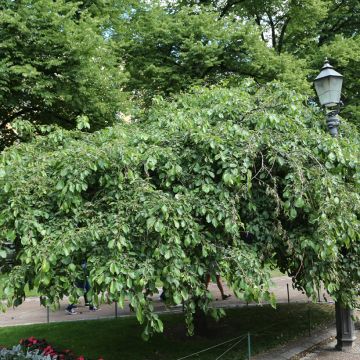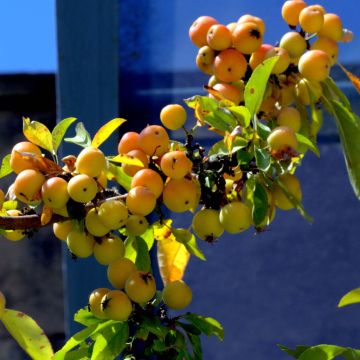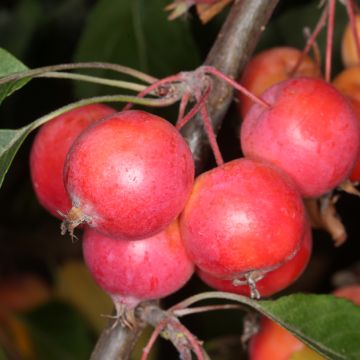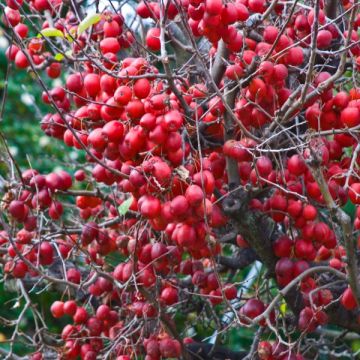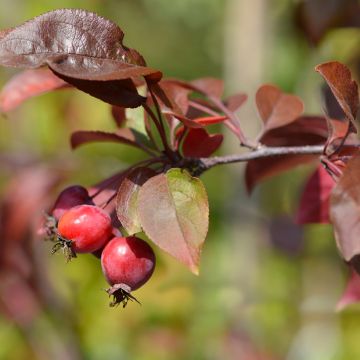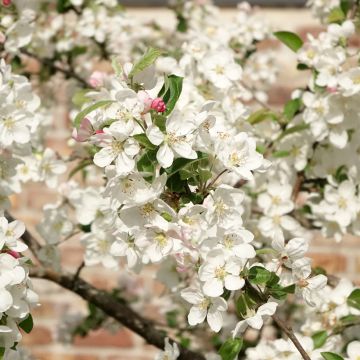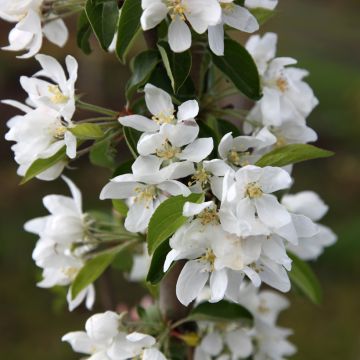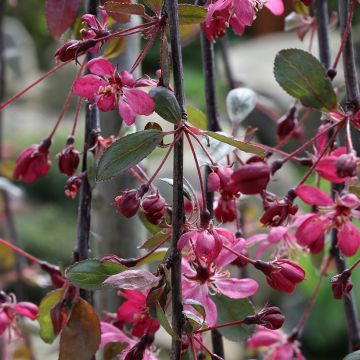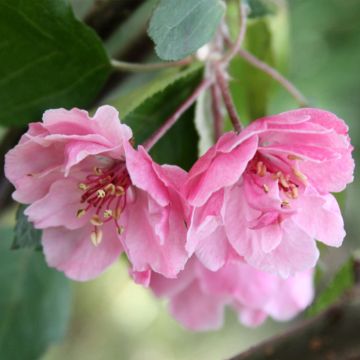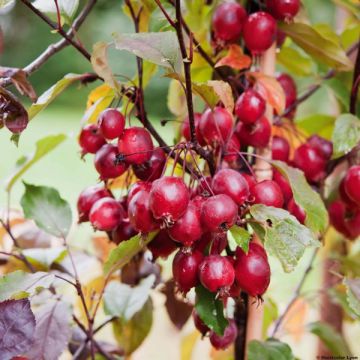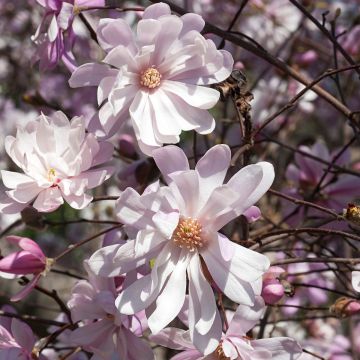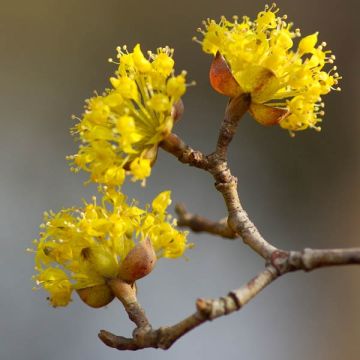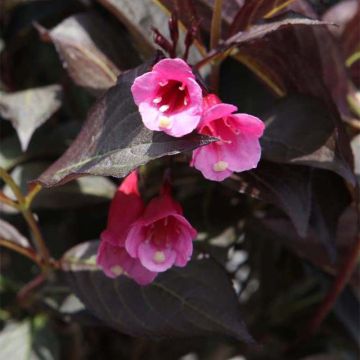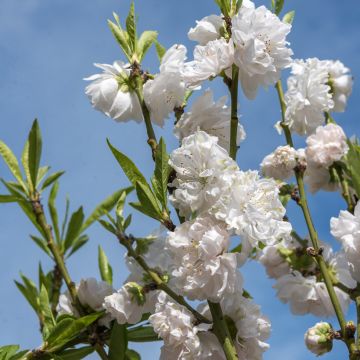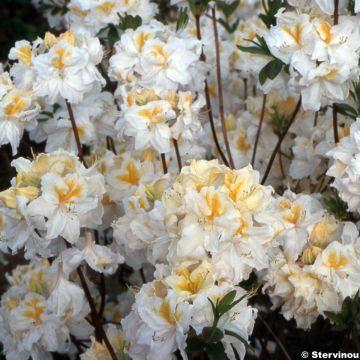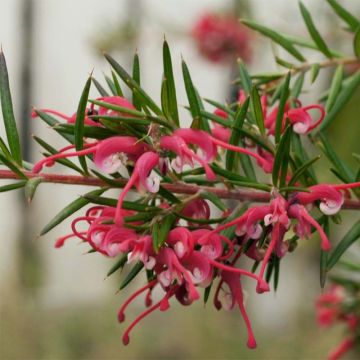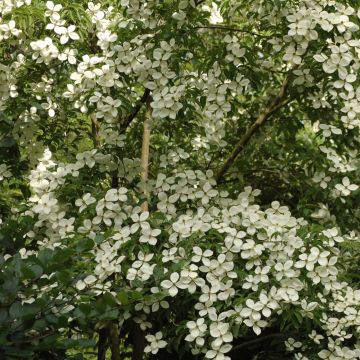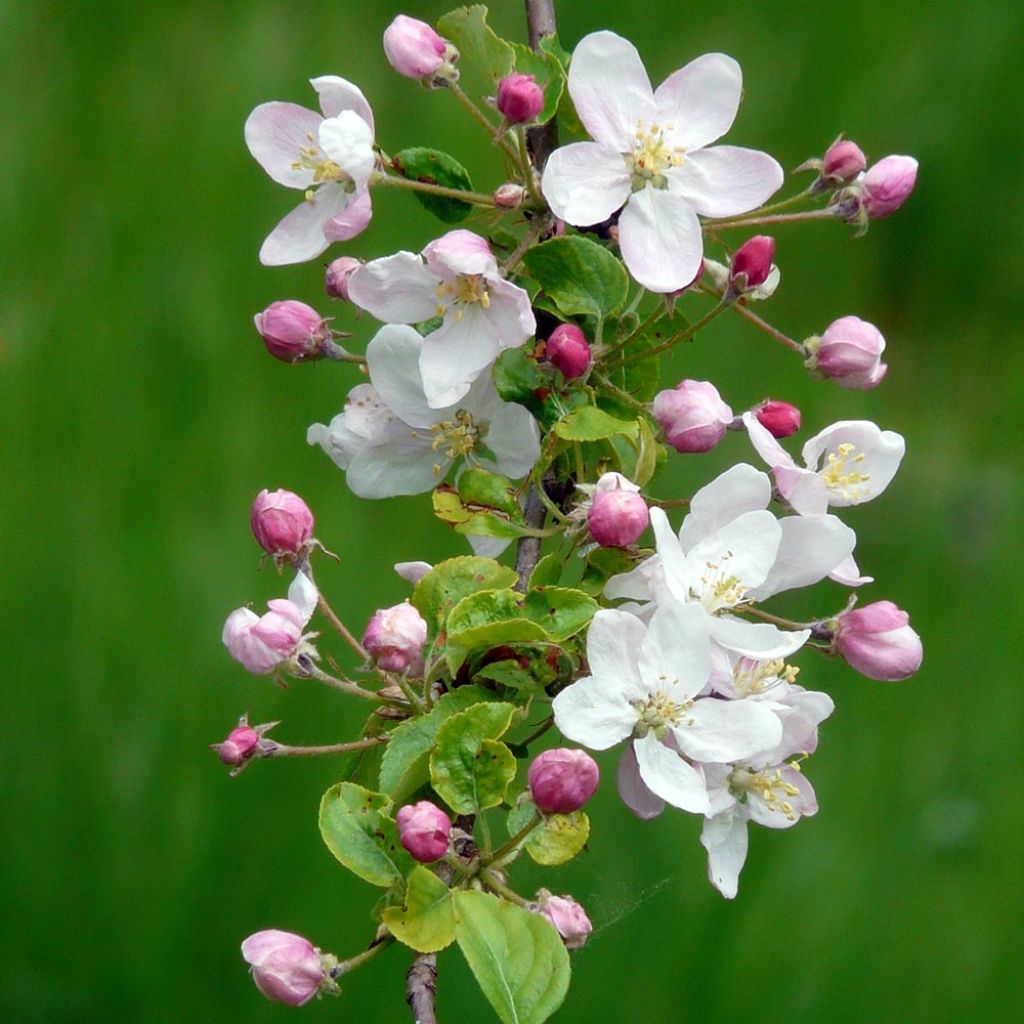

Malus sylvestris - Crab Apple
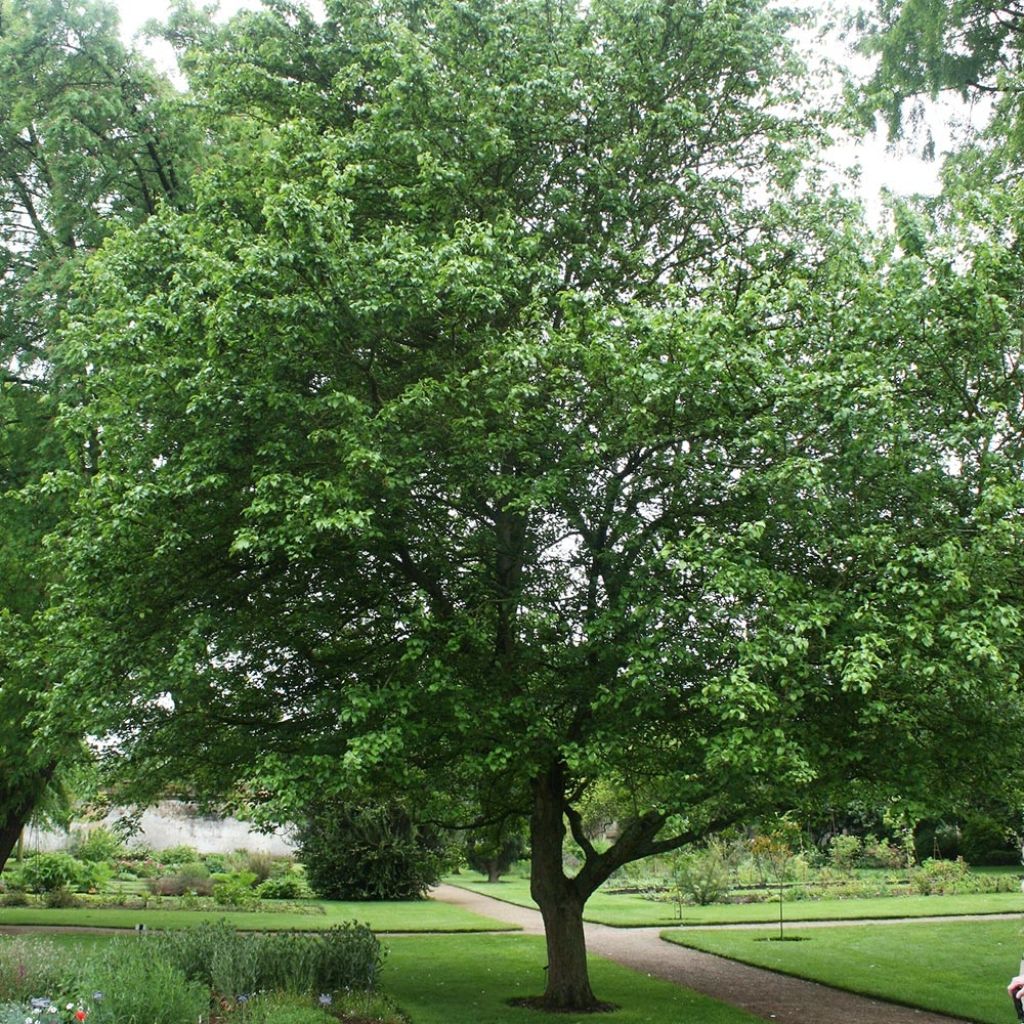

Malus sylvestris - Crab Apple
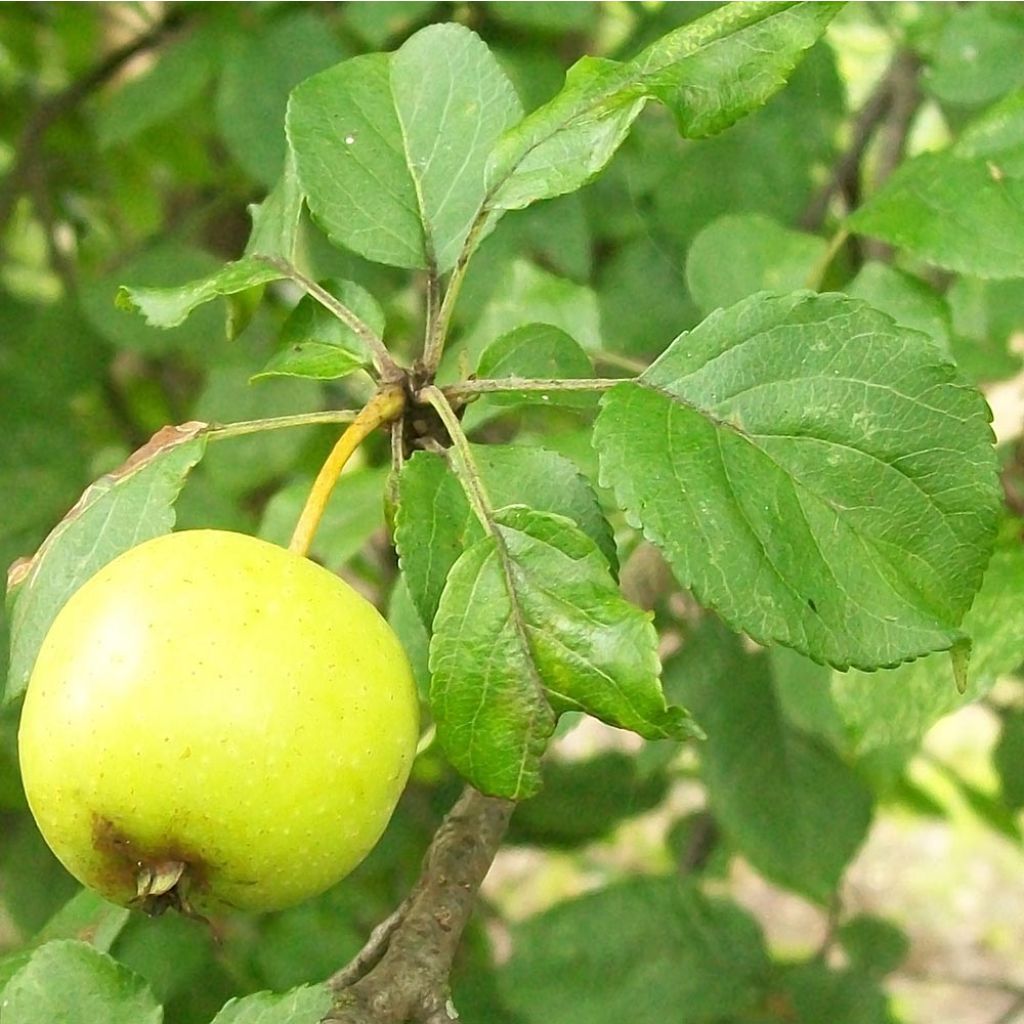

Malus sylvestris - Crab Apple
Malus sylvestris - Crab Apple
Malus sylvestris
European Crab Apple, Wild Apple
Hello, the carrier did not respect the announced delivery day, leading to a rescheduling. The bare root plants were loose in a large box without any other packaging, with the roots visibly very dry. To be seen.
Claude, 21/12/2024
Special offer!
Receive a €20 voucher for any order over €90 (excluding delivery costs, credit notes, and plastic-free options)!
1- Add your favorite plants to your cart.
2- Once you have reached €90, confirm your order (you can even choose the delivery date!).
3- As soon as your order is shipped, you will receive an email containing your voucher code, valid for 3 months (90 days).
Your voucher is unique and can only be used once, for any order with a minimum value of €20, excluding delivery costs.
Can be combined with other current offers, non-divisible and non-refundable.
Home or relay delivery (depending on size and destination)
Schedule delivery date,
and select date in basket
This plant carries a 24 months recovery warranty
More information
We guarantee the quality of our plants for a full growing cycle, and will replace at our expense any plant that fails to recover under normal climatic and planting conditions.
Would this plant suit my garden?
Set up your Plantfit profile →
Description
Malus sylvestris, or Wild Apple Tree, is a native botanical species, sometimes found in deciduous forests or on the edge of woods. This small tree forms an oval to rounded crown, quite irregular, which widens and amplifies with age. In spring, it is adorned with a charming flowering, which is pale pink when it blooms before becoming pure white. The flowers are followed by small yellowish-green apples with red highlights that persist for a long time on the branches. This small tree is quite resistant to diseases and insects. It is perfect for a natural or wild-inspired garden, even in a small space. It will also work well in an orchard as a pollinator, thanks to its long flowering period.
The wild apple tree, like other botanical species of the genus Malus, belongs to the Rosaceae family. It naturally grows in Europe, in deciduous forests, hedges or on the edge of woods. Hardy, accommodating and easy to grow, it can tolerate ordinary soil but prefers loamy, deep, loose and moist soil, as well as sunny exposures. Once established, it can perfectly withstand a little neglect. This small tree has a generally rounded to oval habit, which is rather irregular. It can sometimes develop as much in width as in height. It usually reaches between 5 m and 9 m (16.4 ft to 29.5 ft) in height and between 4 m and 7 m (13.1 ft to 23 ft) in spread. Its branches, sometimes covered with thorns, can take a tortuous shape with age. The flexible wood is adorned with a smooth bark of grey-brown colour, which peels off in small flakes.
Flowering takes place in May, in the form of numerous pink buds, opening into single flowers, 3.5 cm to 4 cm (1.4 in to 1.6 in) in diameter, pale pink in colour that quickly turn white. These flowers, gathered in small clusters, bloom at the same time as the young leaves. The flowering is followed by the formation of numerous small apples the size of cherries, between 2 cm to 3 cm (0.8 in to 1.2 in) in diameter. When ripe in late summer, they are yellowish-green, and tinged with red when exposed to the sun. They have a very acidic taste, earning them the name of "sour apple tree". Very rich in pectin, they are used to make delicious jellies. These fruits remain attached to the tree during half of winter, until December, and constitute a precious food reserve for birds. Its leaves are ovate, alternate, with finely toothed lamina. The young leaves are pubescent. The shiny dark green foliage is deciduous and takes on warm tones in autumn.
Malus sylvestris, like flowering apple trees, is a good pollinator for early-flowering fruit trees. Thanks to its beautiful spring flowering and its lovely fruits that remain on the tree for a long time in winter, it will be decorative for a good part of the year. It will suit a medium to small-sized garden, in a free hedge, accompanied for example by tall bush roses or climbing roses trained as bushes, evergreen Viburnum, and lilacs. When space allows, wild apple trees planted in a large hedge on a slope bordering a sunken path create a rather magical tableau from spring to winter.
Report an error about the product description
Malus sylvestris - Crab Apple in pictures
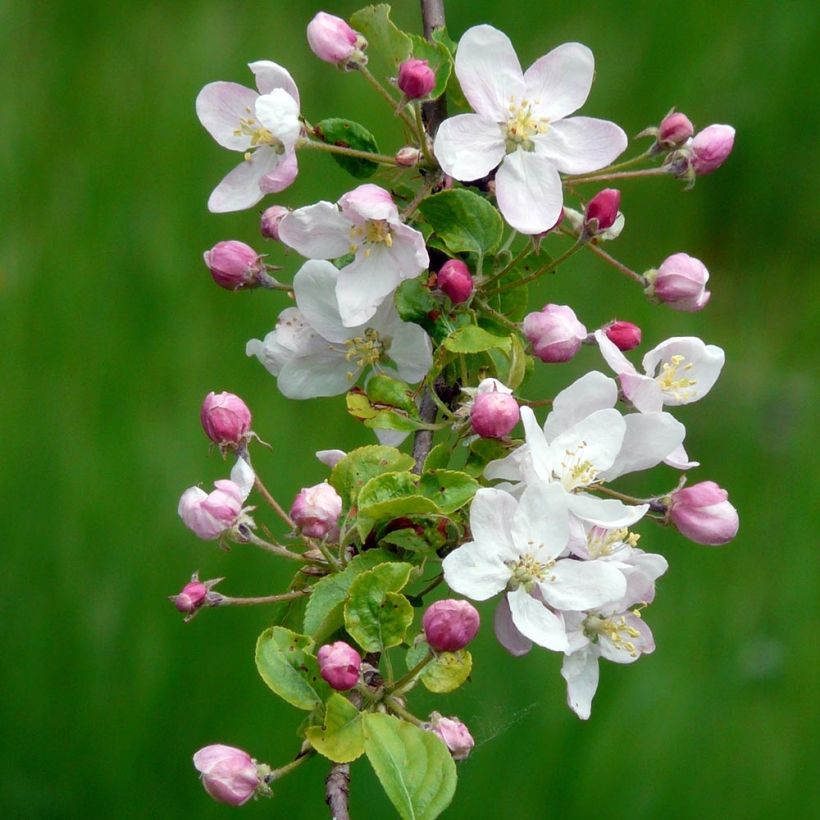

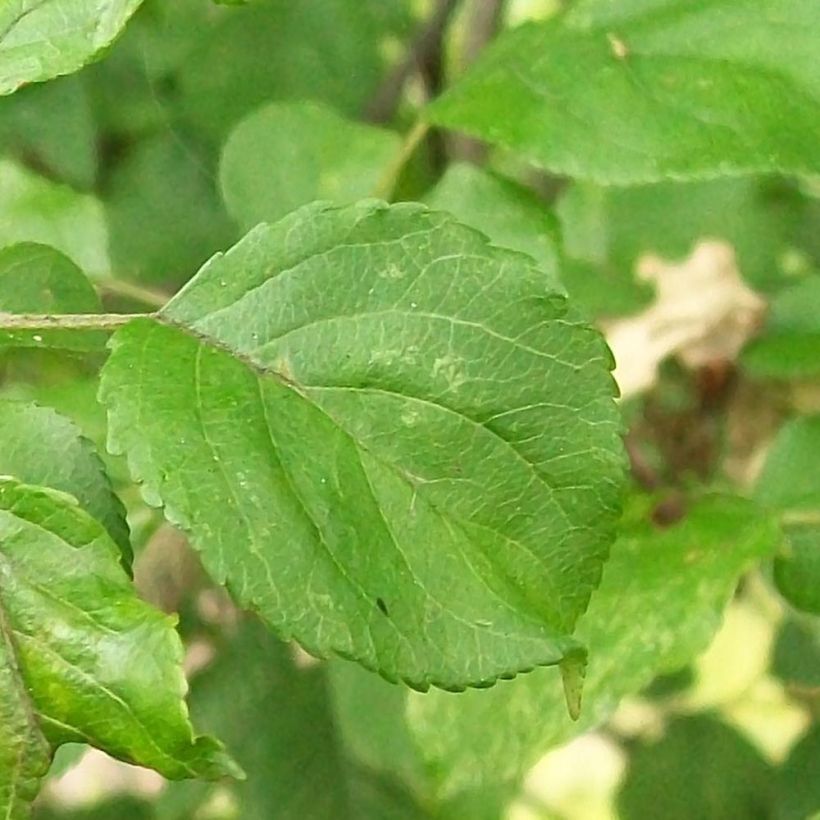

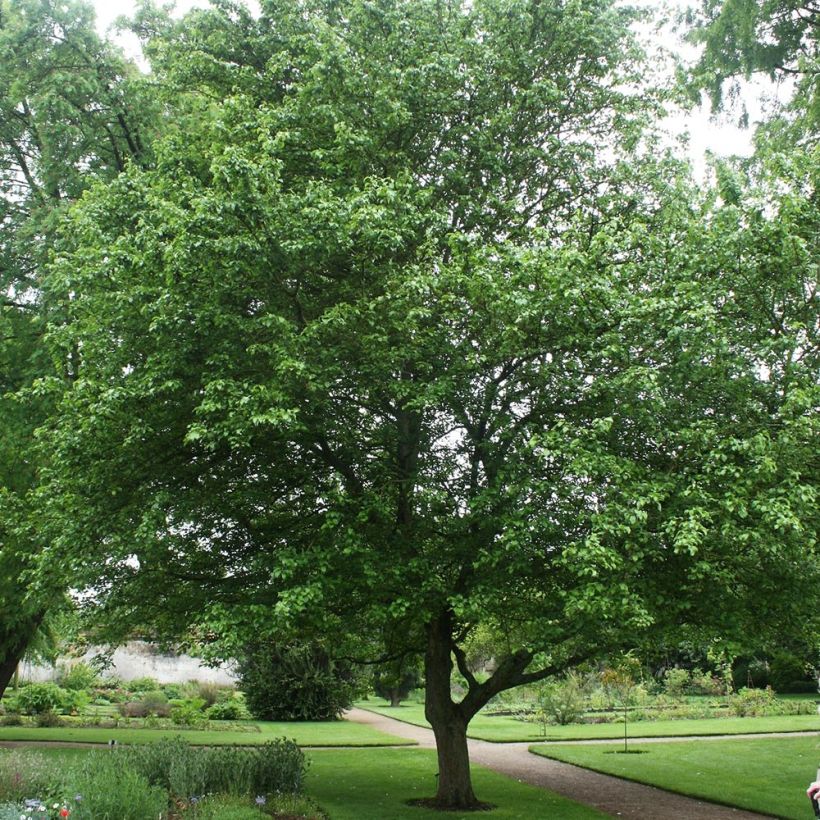

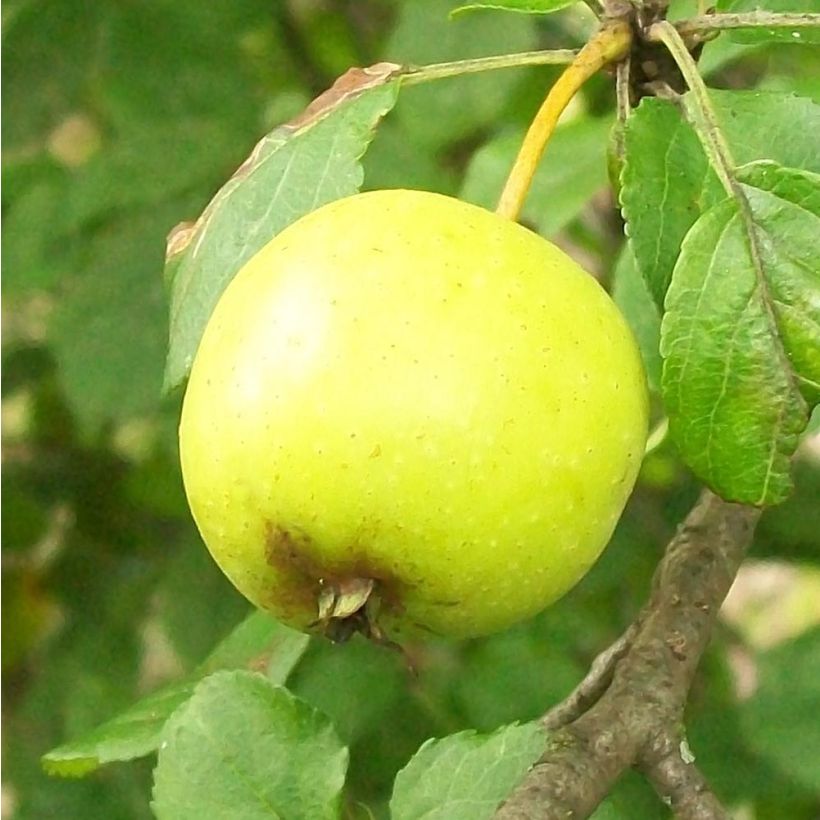

Plant habit
Flowering
Foliage
Botanical data
Malus
sylvestris
Rosaceae
European Crab Apple, Wild Apple
Central Europe
Other Malus - Crabapple
View all →Planting and care
Easy to grow in ordinary but deep soil, Malus sylvestris requires a bright exposure. Malus are generally very accommodating, but they like fertile, moist and deep soils. After careful planting and installation accompanied by regular watering during the first two years, they manage on their own. Plant it in the sun or in partial shade in fresh soil, quite rich but well-drained, giving it enough space to spread. Dig a large planting hole. If the soil is poor, add compost to the planting soil and apply fertiliser or compost to its base every spring.
Planting period
Intended location
Care
-
, onOrder confirmed
Reply from on Promesse de fleurs
Similar products
Haven't found what you were looking for?
Hardiness is the lowest winter temperature a plant can endure without suffering serious damage or even dying. However, hardiness is affected by location (a sheltered area, such as a patio), protection (winter cover) and soil type (hardiness is improved by well-drained soil).

Photo Sharing Terms & Conditions
In order to encourage gardeners to interact and share their experiences, Promesse de fleurs offers various media enabling content to be uploaded onto its Site - in particular via the ‘Photo sharing’ module.
The User agrees to refrain from:
- Posting any content that is illegal, prejudicial, insulting, racist, inciteful to hatred, revisionist, contrary to public decency, that infringes on privacy or on the privacy rights of third parties, in particular the publicity rights of persons and goods, intellectual property rights, or the right to privacy.
- Submitting content on behalf of a third party;
- Impersonate the identity of a third party and/or publish any personal information about a third party;
In general, the User undertakes to refrain from any unethical behaviour.
All Content (in particular text, comments, files, images, photos, videos, creative works, etc.), which may be subject to property or intellectual property rights, image or other private rights, shall remain the property of the User, subject to the limited rights granted by the terms of the licence granted by Promesse de fleurs as stated below. Users are at liberty to publish or not to publish such Content on the Site, notably via the ‘Photo Sharing’ facility, and accept that this Content shall be made public and freely accessible, notably on the Internet.
Users further acknowledge, undertake to have ,and guarantee that they hold all necessary rights and permissions to publish such material on the Site, in particular with regard to the legislation in force pertaining to any privacy, property, intellectual property, image, or contractual rights, or rights of any other nature. By publishing such Content on the Site, Users acknowledge accepting full liability as publishers of the Content within the meaning of the law, and grant Promesse de fleurs, free of charge, an inclusive, worldwide licence for the said Content for the entire duration of its publication, including all reproduction, representation, up/downloading, displaying, performing, transmission, and storage rights.
Users also grant permission for their name to be linked to the Content and accept that this link may not always be made available.
By engaging in posting material, Users consent to their Content becoming automatically accessible on the Internet, in particular on other sites and/or blogs and/or web pages of the Promesse de fleurs site, including in particular social pages and the Promesse de fleurs catalogue.
Users may secure the removal of entrusted content free of charge by issuing a simple request via our contact form.
The flowering period indicated on our website applies to countries and regions located in USDA zone 8 (France, the United Kingdom, Ireland, the Netherlands, etc.)
It will vary according to where you live:
- In zones 9 to 10 (Italy, Spain, Greece, etc.), flowering will occur about 2 to 4 weeks earlier.
- In zones 6 to 7 (Germany, Poland, Slovenia, and lower mountainous regions), flowering will be delayed by 2 to 3 weeks.
- In zone 5 (Central Europe, Scandinavia), blooming will be delayed by 3 to 5 weeks.
In temperate climates, pruning of spring-flowering shrubs (forsythia, spireas, etc.) should be done just after flowering.
Pruning of summer-flowering shrubs (Indian Lilac, Perovskia, etc.) can be done in winter or spring.
In cold regions as well as with frost-sensitive plants, avoid pruning too early when severe frosts may still occur.
The planting period indicated on our website applies to countries and regions located in USDA zone 8 (France, United Kingdom, Ireland, Netherlands).
It will vary according to where you live:
- In Mediterranean zones (Marseille, Madrid, Milan, etc.), autumn and winter are the best planting periods.
- In continental zones (Strasbourg, Munich, Vienna, etc.), delay planting by 2 to 3 weeks in spring and bring it forward by 2 to 4 weeks in autumn.
- In mountainous regions (the Alps, Pyrenees, Carpathians, etc.), it is best to plant in late spring (May-June) or late summer (August-September).
The harvesting period indicated on our website applies to countries and regions in USDA zone 8 (France, England, Ireland, the Netherlands).
In colder areas (Scandinavia, Poland, Austria...) fruit and vegetable harvests are likely to be delayed by 3-4 weeks.
In warmer areas (Italy, Spain, Greece, etc.), harvesting will probably take place earlier, depending on weather conditions.
The sowing periods indicated on our website apply to countries and regions within USDA Zone 8 (France, UK, Ireland, Netherlands).
In colder areas (Scandinavia, Poland, Austria...), delay any outdoor sowing by 3-4 weeks, or sow under glass.
In warmer climes (Italy, Spain, Greece, etc.), bring outdoor sowing forward by a few weeks.






























